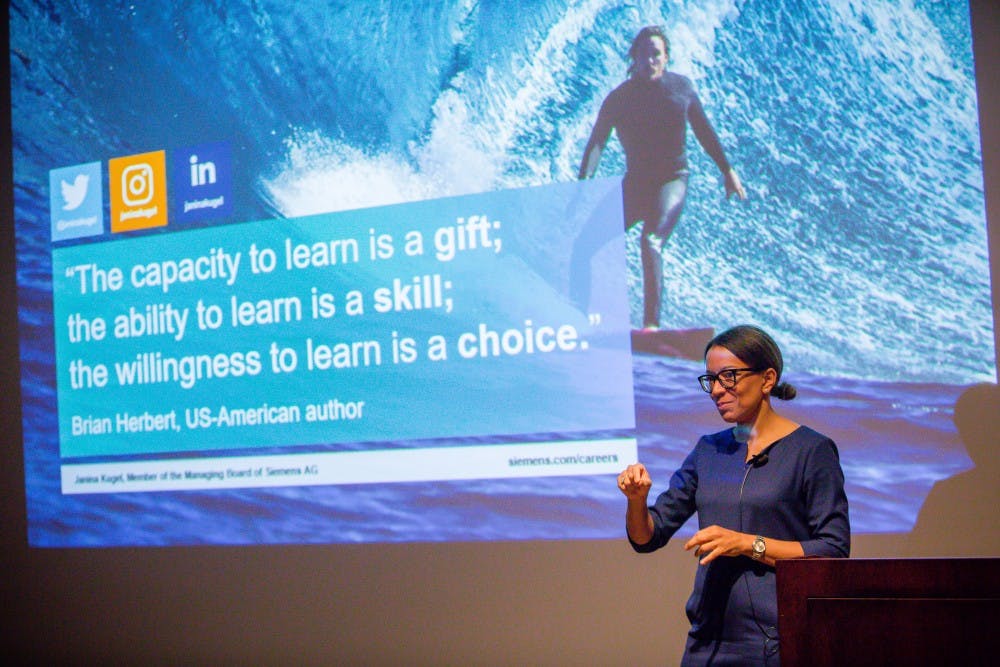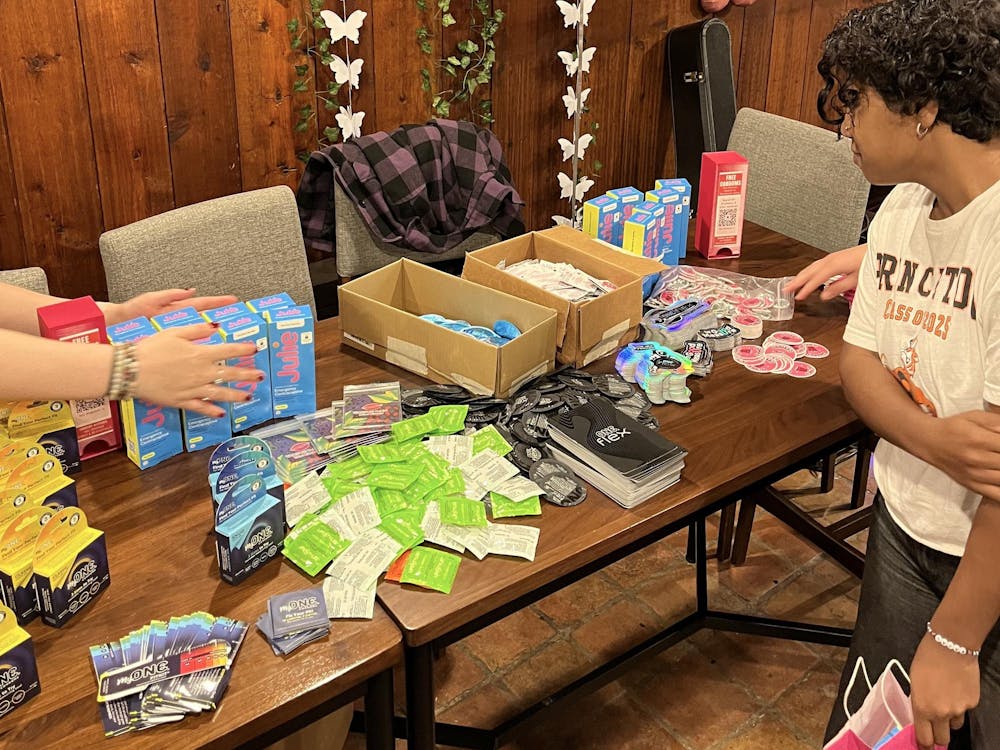Janina Kugel has been the Chief Human Resources Officer of Siemens AG, a German multinational tech company, since February 2015. In her position, she has global responsibility for human resources – which includes diversity and health management and safety, among other areas.
On Tuesday, April 16, she spoke at the University in a talk titled “Shaping the future of work together!”
Below is a lightly edited and condensed interview with Kugel conducted by the ‘Prince.’
The Daily Princetonian: How did you get to where you are now? Is this where you thought you’d end up?
Janina Kugel: I did not have the idea to become a CHRO or anything. I didn’t even know back then that I wanted to do HR, but I was always open and curious to take opportunities. I did not only have a Plan A — I usually had a Plan A, B or C in my mind — so I liked to always be flexible. What I love doing is strategic work, operational work, working in different countries — I think that is a variety of experiences that I’m into. But I don’t think you can plan careers so much ahead of time.
DP: Do you feel like things kind of fell into place for you?
JK: I think sometimes, with doing certain things or not doing certain things, you know that you can actually make it happen [and] that things then will follow. For example, if I hadn’t been taking an operational role, I knew that I would never be able to take general responsibility for everything. So sometimes I think you can take conscious decisions of opening up opportunities, and sometimes I think, if you make other decisions, you are closing opportunities. And I think that’s what you need to consider.
DP: What’s your favorite aspect of your career, or about human resources in general?
JK: I took that choice of going into human resources like eight or nine years back into my professional career, so it took me some time. What I like is actually the human aspect: the most challenging thing that one can have in a career, and also the most frustrating aspect. But it’s just like an interest, like what can you actually do to really drive an organization built on people? That’s why I chose HR.
DP: On a personal level, what are the most challenging aspects of your work?
JK: That depends, because I think today I would tell you that the most challenging aspects are totally different things than what I [would]’ve been telling you 10 years ago. Just because there is, of course, always a question of how often have you done the same thing, how often have you made very similar decisions. I think the biggest challenges on one hand are always — well, very clearly, hiring people is much nicer than needing to lay off people. That’s very clear. But, I think, continuous learning, like how to move people to that change of mindset that they have to continue to learn, and also how to change the leadership culture.
DP: What concrete steps do you think companies could be taking that they aren’t, perhaps, to increase diversity?

JK: You have to put in a clear strategy, you have to put structure to processes, because it will not happen if you are not really structuring a process. For example, structuring a process is like having recruiting interviews done by diverse panels, or by diverse interviewers, because then you will get totally different results. And then also having a very clear strategy and vision behind it, and also measuring results.
DP: Do you think there is more we could be doing as a society to encourage people from a younger age to enter certain fields or careers that they are not?
JK: When I was 18, I didn’t exactly know what I wanted to do, and I didn’t know what it would feel like to go into certain jobs when I was graduating. I think what helps is when you have role models telling you what it feels like to have their jobs. I think today with social media, having, like, “A day in the life of a _____,” you can actually realize what does a day look like, which wasn’t possible 20 years ago. And I think sharing not only the skills that you need to have, but also what’s the surrounding of the job, and I think that actually gives you a pretty good orientation.
DP: You talked a bit about this need to “switch off” in your personal life, and with the future of work there is less and less of a distinction between what is work and what is home. Do you see that as a challenge, and how can we still give people the opportunity to come home from work?
JK: There are some people that need to have the differentiation between what is their professional life and what is their home, they want to make that split, and there’s others that actually merge the one with the other. What I think is relevant is that we do not only have a one-fits-all solution, that we really give the opportunity to people to actually define it themselves, but we also need to allow that to happen. I believe that sometimes it’s good to distract from some things. For example, when I’m caught in a problem, and I put on my running shoes and go for a run, I usually get better ideas afterwards. And everyone has his or her own mechanisms and what they could do to get better ideas.
DP: What advice do you have for young people, especially college students, in entering the workforce?
JK: I would say try to do as many internships as you can, to get a glimpse of what it really feels like, and try to use the opportunities when they’re offered to you. Don’t be so fixed on “I need to do so-and-so years in this job or in this organization.” Also look at the opportunities when they come up and grab them when they are there. And my last recommendation would also be go and live in another country. Go and live in another country and experience another culture.









